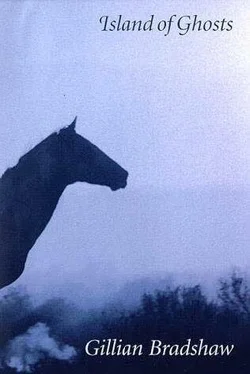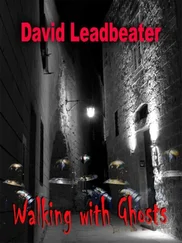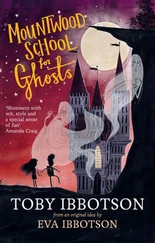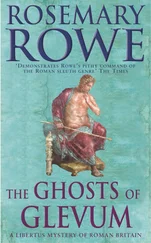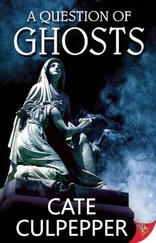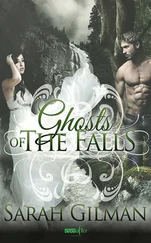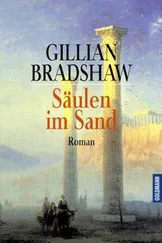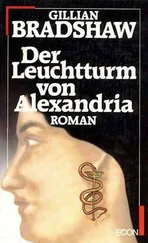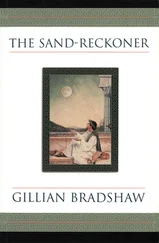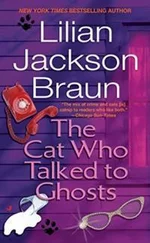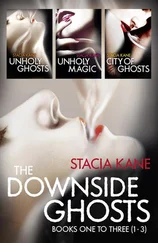Gillian Bradshaw - Island of Ghosts
Здесь есть возможность читать онлайн «Gillian Bradshaw - Island of Ghosts» весь текст электронной книги совершенно бесплатно (целиком полную версию без сокращений). В некоторых случаях можно слушать аудио, скачать через торрент в формате fb2 и присутствует краткое содержание. Жанр: Исторические приключения, на английском языке. Описание произведения, (предисловие) а так же отзывы посетителей доступны на портале библиотеки ЛибКат.
- Название:Island of Ghosts
- Автор:
- Жанр:
- Год:неизвестен
- ISBN:нет данных
- Рейтинг книги:3 / 5. Голосов: 1
-
Избранное:Добавить в избранное
- Отзывы:
-
Ваша оценка:
- 60
- 1
- 2
- 3
- 4
- 5
Island of Ghosts: краткое содержание, описание и аннотация
Предлагаем к чтению аннотацию, описание, краткое содержание или предисловие (зависит от того, что написал сам автор книги «Island of Ghosts»). Если вы не нашли необходимую информацию о книге — напишите в комментариях, мы постараемся отыскать её.
Island of Ghosts — читать онлайн бесплатно полную книгу (весь текст) целиком
Ниже представлен текст книги, разбитый по страницам. Система сохранения места последней прочитанной страницы, позволяет с удобством читать онлайн бесплатно книгу «Island of Ghosts», без необходимости каждый раз заново искать на чём Вы остановились. Поставьте закладку, и сможете в любой момент перейти на страницу, на которой закончили чтение.
Интервал:
Закладка:
It was very strange, setting out with Roman troops to catch a party of barbarian raiders. I had imagined it before-the raising of the alarm, the rush to arms, the gallop across country in what was hoped to be the right direction, the snippets of news gained from frightened shepherds or farmers, and finally the moment when you crest a hill and see the enemy there beyond you. I had imagined it because I was curious to know what it must be like for them, my opponents. Living it for myself was so like what I had anticipated that it felt unreal, as though I were imagining it again.
The signal fires told us to go east; the shepherds and farmers we questioned told us that there were “thousands” of the raiders. We left the road and moved across the hills to the north, sending out scouts to locate the enemy. In fact, we might have dispensed with their services: the enemy made no effort to conceal themselves. We arrived at the town of Corstopitum, the principal town of the region, to find it overrun. It was the beginning of December, a dull gray day, but not too cold: we stopped at the edge of a slate-colored wood and looked down at a city surrounded, smoking here and there with fires.
Corstopitum had been built as an army fort to control the bridge over the Tinea River, where the main road north meets the main road west. The fort was decommissioned when the Wall was built just north of it, then recommissioned for use as a supply base: in the time between the two events, the thriving city had grown so much that the old fort had been swallowed up, and the new one had to be laid out as two irregular enclosures on either side of the main road north, instead of the neat rectangle used everywhere else. The bridge was now held by a large party of invading cavalry-we could see the gleam of their whitewashed shields-and the fort appeared to be under attack: the fires were concentrated about it, and the marketplace before it was full of armed men.
Longus, who had been riding beside me, groaned. “They’re after our pay,” he said.
It seemed that the quarterly pay for all the men stationed at all the forts along the eastern Wall was distributed from Corstopitum, and that this huge sum of money was almost certainly inside the besieged fortress. The garrison at Corstopitum was an auxiliary ala called the First Thracians, a part-mounted force of five hundred men. It could be assumed that the number of the raiders was at least twice as great, or they would not have attacked at all.
Comittus bit his lip and struggled to control his horse. He had been pale and feverish with excitement during the ride, and his mood had communicated itself to his flashy black stallion, which was snorting and fighting with the bit. “There hasn’t been a raid this big for years and years,” he said unhappily.
Facilis snorted. “A quarter’s pay for four thousand men’s a tempting target. I doubt they meant to fight us as well as the Thracians for it, though.”
One of my scouts galloped up and drew rein. “They are all in the town, my prince,” he announced. “They have a detachment on the bridge, to prevent the townspeople from escaping, but no one in the hills.”
No danger of a flank attack. Comittus had said that the Picts were in general lightly armed, and that their leaders tended to be jealous of one another, so that their fighting was disorganized. I judged that whatever their number might be, the enemy could not overwhelm us. I consulted the Romans on the order of battle, and then gave the signal.
The drums rattled and the dragon divided in two, eight squadrons to the left of the Asturians, eight to the right. Then the beat slowed to the steady one-two rhythm of the walk, and we rode out from the shelter of the trees and started down the hill.
The Picts noticed us quickly and began to pour out of the town. They didn’t want to be caught in the narrow streets, trapped between us and the Corstopitum garrison. I kept our pace slow: I didn’t want to fight inside the town either. The enemy grouped themselves into irregular squadrons along the road facing us. They began to beat their spears against their shields and give hawklike screams. They were indeed lightly armed-spears, swords, and wooden shields that had been whitewashed or painted in bright colors. Only a few of them wore mail, and not one in a hundred had a helmet. They wore the same kind of gray-brown tunics and trousers and the same checked cloaks as I’d seen on the shepherds who crossed the Wall to go to market, but as we drew nearer I noticed that they’d covered their faces with the blue and green war paint that had given them the name “Picts.” There were too many of them to count-eight, nine hundred? — and then the first wave moved forward, and more Picts came from the city, and more.
I raised my right hand, and the half-dragons swung out, spreading across the hill to cut off the Picts’ retreat. The drumbeat quickened, sounding sharp and high above the growing thunder of the hooves. The trumpets of the Asturians rang out, and they halted in the middle of the road, their red and white standard waving.
From within Corstopitum, more trumpets answered, faint with distance. The First Thracian Cohort was hurrying to join its unexpected reinforcements.
The Picts began advancing directly up the road toward the Asturians, obviously preferring them to us. The Asturians remained motionless, spears leveled-waiting, as we had agreed. I raised my hand once more, and the drumbeat quickened again: we began to trot down toward the Picts at an angle. The long tail of our standard twisted in the wind behind me, crimson and gold. The beat quickened still more, and the horses broke into a canter, into a gallop. We shouted our own war cry: “Marha! Marha!” with one deep voice, and drew our bows from their cases, setting the arrows to the string.
The Picts knew nothing about mounted archers. When we veered away from them, they began to hoot and jeer in triumph, believing, I suppose, that their numbers and their paint had frightened us off. Then the arrows struck, and the jeers turned abruptly into screams of pain and consternation. We galloped past them on both sides, shooting; some of the Picts hurled javelins back, but at that range these were useless against armored enemies, while our arrows found easy targets in the raiders’ unarmored legs and sides. Their advance foundered, collapsing in a sea of dead and injured men and horses. The trumpets of the Asturians rang out, and they rolled forward. I drew rein and waved the men around, putting away my bow and pulling out and lowering my spear. I felt an unfamiliar dread as its weight came down into my hand. There was no glory in this contest. It was simple slaughter.
The Picts were brave men. They struggled to regroup themselves, to settle their shields on their arms, to gather up the reins, lower the spear, all the while we swept down on them. The same instinct that informed me must have told them that they were facing death-but they faced it with unaltered courage. The Asturians struck them first, but lightly: they clashed, halted, horses rearing, men fighting. Then our charge caught them on both sides, and they went under like a nest of field voles sliced open by the plow. We galloped over them, killing with the lance and the long sword and trampling the corpses underfoot. When we drew rein and turned again on the other side of the field, the remaining Picts flung themselves off their horses and begged for mercy. The First Thracians, hurrying up from the city behind them, were too late to do anything except secure the prisoners and bury the dead.
The aftermath of the battle was unreal. I sat on my horse among the Roman officers and watched as the barbarians were disarmed, bound, and led off. There had been about eighteen hundred of them, of whom half were now dead. My men busily stripped the corpses of valuables and, of course, scalps. I told myself that I was doing nothing more than honoring the bargain my people made at Aquincum, but I was revolted at it and at myself. I had fought in a great many battles, from the first, when I was fourteen and rode with the archers, to the Thundering Defeat, but the battle against the Pictish raiders at Corstopitum was the most pitiful affair I ever took part in. We might have dispensed with the arrows altogether and taken them with the cavalry charge alone. I was accustomed, though, to using a force of mounted archers at least twice as large as my armored troops, and didn’t like the idea of employing no archery at all. Besides, we hadn’t been sure of the enemy’s numbers, and the arrows could have covered a retreat.
Читать дальшеИнтервал:
Закладка:
Похожие книги на «Island of Ghosts»
Представляем Вашему вниманию похожие книги на «Island of Ghosts» списком для выбора. Мы отобрали схожую по названию и смыслу литературу в надежде предоставить читателям больше вариантов отыскать новые, интересные, ещё непрочитанные произведения.
Обсуждение, отзывы о книге «Island of Ghosts» и просто собственные мнения читателей. Оставьте ваши комментарии, напишите, что Вы думаете о произведении, его смысле или главных героях. Укажите что конкретно понравилось, а что нет, и почему Вы так считаете.
